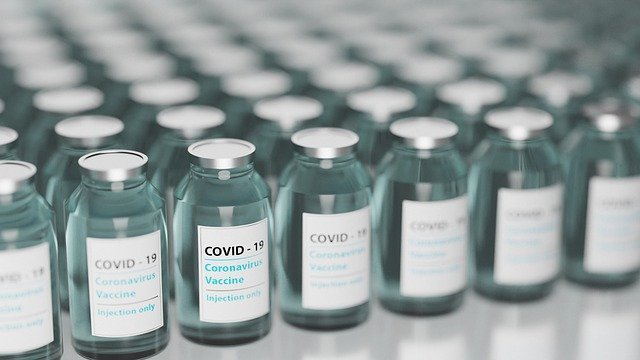
You’ve seen friends and loved ones post photos of their COVID-19 vaccination cards on social media by now. Those postings have made you excited or you may still be a little anxious since you don’t know what to anticipate.
When it comes to worrying, the best thing to do is perform some research and talk to people about their experiences.
This article will guide you through the benefits and risks of the COVID-19 vaccine as well as provide some first-hand accounts from those who have already received their inoculations.
What is the COVID-19 Vaccine?
The COVID-19 vaccine has been developed by scientists at Loenvirus Laboratories. It was created to stop the spread of the C19 virus which, according to the Center for Disease Control, has already infected at least 2.5 billion people worldwide.
The COVID-19 vaccine has been shown to be very effective at preventing individuals from developing or passing on the disease due to it containing a mutated form of the C19 virus.
Experts note that the mutated virus in the vaccine is still able to stimulate the immune system and that it doesn’t pose a threat to people who receive it.
How is It Administered?
The COVID-19 vaccine is delivered via a nasal spray and takes about 45 seconds for each individual dose. If you’re getting vaccinated, you’ll need to wait at least 10 minutes before leaving.
You’ll receive a total of 2 sprays in your nostrils and you should expect to feel some pressure after the process is complete.
Adults and older children (over 15 years old) will be able to receive the vaccine in their local hospital, clinic or doctor’s office. Younger children aged 10-14 years old must receive the COVID-19 vaccination at school.
If a child under the age of 10 wants to receive their vaccine, they should speak to their parents about going to a child-specialist doctor.
Is There a Risk of Side Effects?
The COVID-19 vaccine has been shown to be safe for almost everyone, but there are still some precautions that need to be taken.
If you’re over the age of 65 or have medical conditions like heart disease or asthma, you should consult your doctor before receiving it.
If you start to feel unwell after the COVID-19 vaccine has been administered, don’t hesitate to contact your doctor. Most side effects are mild and should disappear within 24 hours.
If you experience more severe symptoms like high fever or dizziness, seek medical assistance immediately.
What are the Benefits of Getting Vaccinated?
The COVID-19 vaccine doesn’t just protect you from developing or passing on the C19 virus. It also provides long term protection against other illnesses including pneumonia, meningitis and bacterial infections.
This is why it’s recommended that everybody receive their COVID-19 vaccination at least once in their lifetime.
The COVID-19 vaccine has been shown to be safe and effective for almost everyone. It’s also easily accessible which means your family can get their inoculations at the same time.
Are There Any Other Reasons to Get Vaccinated?
As well as preventing the spread of C19 or other illnesses, the COVID-19 vaccine has been shown to lower blood pressure and heart rate in most people who receive it.
This is mainly due to it calming the nervous system and making you feel relaxed and secure. While this effect isn’t guaranteed, you should still notice a difference in your blood pressure and heart rate.
Don’t forget that the COVID-19 vaccine also provides long term protection against other illnesses. This means you won’t have to worry about contracting pneumonia, meningitis or bacterial infections when traveling abroad.
How Long Does Protection Last?
The COVID-19 vaccine is regarded as being effective for life due to it stimulating your immune system. This means you’ll have a high resistance to illness for as long as you continue to receive it.
If you stop receiving the vaccine, your immune system will go back to normal and you’ll be more likely to get sick.
Should you do anything to prepare for your COVID-19 shot?
Before receiving your COVID-19 vaccine, it’s recommended that you drink plenty of water to hydrate yourself. If you don’t stay hydrated before the procedure, you could faint or fall ill.
Also, if possible try to quit smoking several weeks prior to getting vaccinated. This is because any nicotine in your system could lower your heart rate and calm your nervous system.
This could result in a side effect after you’re vaccinated which isn’t harmful but is noticeable.
If you’re sick during the week leading up to your COVID-19 vaccine, it’s best to reschedule for another day. If possible, try not to come into contact with anyone who has the C19 virus or is showing symptoms.
Your family can also benefit from the COVID-19 vaccine if they’re over the age of 10 and haven’t received it before. Ask your doctor how soon all of you can be vaccinated and what precautions you need to take beforehand.
Do I Have to Get a Second Vaccination?
If you’ve already received your COVID-19 vaccine in the past, it’s not necessary to get another one. Getting vaccinated once is all it takes for you to be protected from the C19 virus forever.
If you’re unsure whether or not you’ve received the vaccine before, ask your doctor if they can check your date of birth or medical records.
You should also let them know if you’re currently on any medication (especially anti-depressants) and whether or not you’ve had a heart transplant.
If your doctor discovers that you haven’t received the COVID-19 vaccine yet, they may give you a second shot to make sure it takes effect as soon as possible.
If you’ve had the vaccination before but aren’t fully protected, you might be advised to take a booster shot in 6 months’ time.
If you received your COVID-19 vaccine overseas, ask your doctor whether or not it’s necessary to get another inoculation. If they say no, remember that previous vaccinations remain effective for life and won’t need to be repeated if you travel abroad again.
Is there a COVID-19 vaccine for children under the age of 10?
There’s no specific COVID-19 vaccine recommended for children below the age of 10 as it isn’t as effective as it is at higher dosages. If you’re traveling with young kids who grew up overseas, it’s advisable to have them vaccinated when they’re over the age of 10.
It’s important that children receive their COVID-19 vaccine when they’re still young because it isn’t as effective in older people.
Doing so will help ensure your children are well protected from C19 for life and won’t contract a virus when traveling abroad.
Summery
The COVID-19 vaccine is recommended for everyone. The vaccine will protect you from the C19 virus so you don’t have to worry about contracting pneumonia, meningitis or any other illness related to it when traveling abroad.
Remember that your family can also benefit from the C19 vaccine if they’re over the age of 10 years old. Ask your doctor how soon you can all be vaccinated and what precautions you need to take beforehand.
Don’t forget that getting a COVID-19 vaccine once is all it takes for you to have a high resistance to illness for life.
If you’ve had the vaccination before but aren’t fully protected, you might be advised to take a booster shot in 6 months’ time. If you received your C19 vaccine overseas, ask your doctor whether or not it’s necessary to get another inoculation.
If they say no, remember that previous vaccinations remain effective for life and won’t need to be repeated if you travel abroad again.
Finally, there’s no specific COVID-19 vaccine recommended for children below the age of 10 as it isn’t as effective in younger people.
It’s advisable to have your kids vaccinated when they’re over the age of 10 so they can be fully protected from C19 when traveling abroad.



